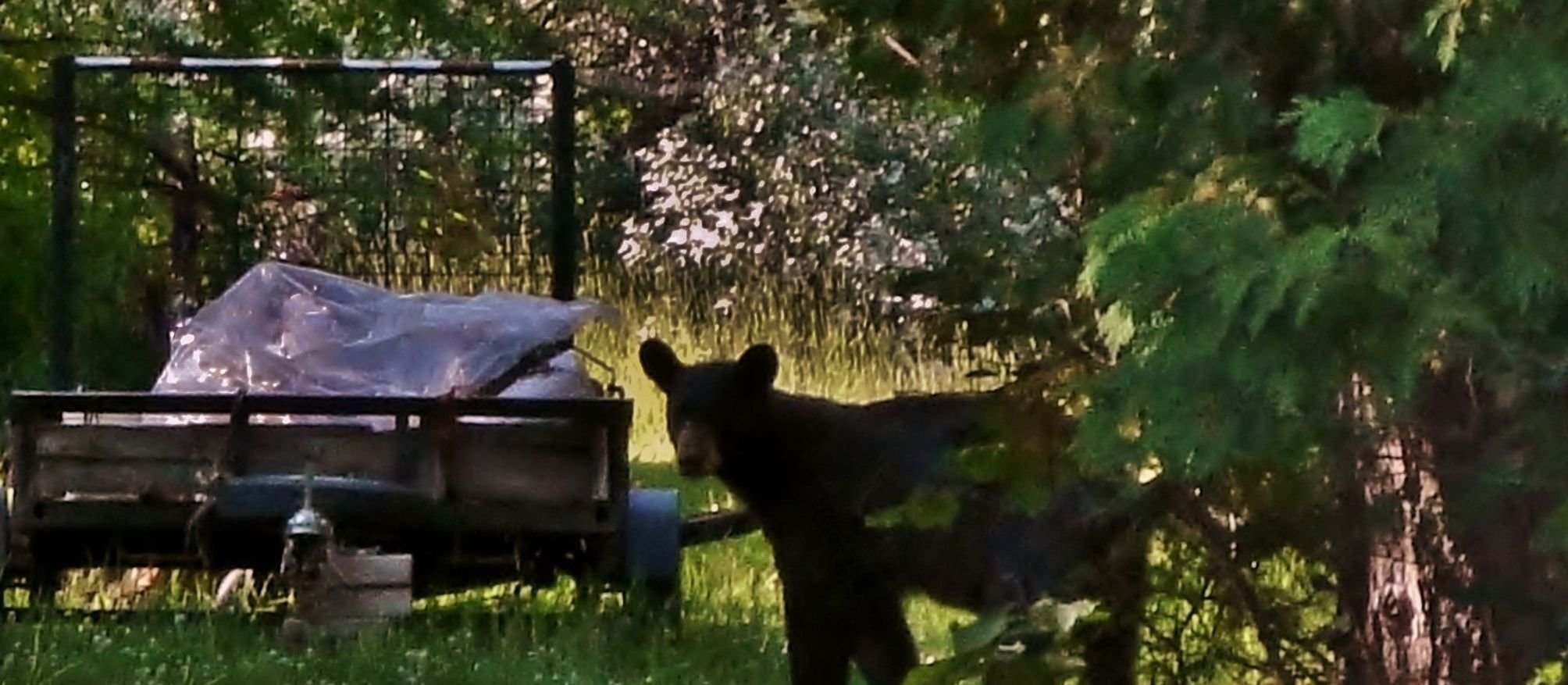
For Agricultural Producers
Bears often approach farms and ranches to find food, especially when natural food sources are scarce. Thankfully, there are a number of effective strategies that can protect your property.
The first step is to secure bear attractants or locate them — especially crops, calving areas, boneyards and feed storage areas — away from forest edges and bear travel routes. Creating open “buffer” zones (100 m is recommended) between potential attractants and the places bears are most likely to frequent decreases the likelihood that bears will approach your chickens and pigs.
Consider bringing livestock, especially smaller animals, inside at night. Fields or pastures, and especially small animal pens, can be secured using a variety of deterrents, including noise-making pyrotechnics, strobe lights, electronic sirens, or scarecrows to temporarily repel bears. (Keep in mind that long-term and repetitious use of these devices may render them ineffective, and dominant older bears may not be repelled by these devices at all.)
Consider electric fencing. It is an easy and inexpensive way to increase security against bears. A well-maintained and well-grounded electric fence can keep bears out of crops, beehives, feed storage areas, and lambing and calving grounds. Calves, goats, geese and especially sheep, pigs, and chickens are all vulnerable. However, bears are smart animals and can learn how to get around them if they’re not properly maintained. Be sure to check your fences regularly to ensure they are functioning properly.
Guard animals, such as dogs, donkeys or llamas, can help deter bears and other predators (like wolves) from preying on livestock. For protection of livestock against black bears in particular, well-trained guard dogs such as Great Pyrenees or Black Mounted Curs appear to be most effective.
Inspect crops and livestock frequently so that any damage can be discovered quickly and preventive measures can be implemented. If you discover a carcass on your property, remove the body as soon as possible. Haul it to the landfill, have a rendering service pick it up, or bury it at least eight feet deep in a remote spot on your land. Don’t dump an animal carcass on public property or leave it near a building, road, trail or other developed area.
If damage has occurred, contact your state/provincial wildlife agency for further control strategies or to see if a compensation program is in place to cover financial losses.
No one technique that will solve every producer’s problems. The most successful approach is often an integrated one, combining good husbandry practices with a combination of electric fences, guard animals, good range riders, and other bear deterrents. Because predators are adaptable and able to learn quickly, it’s important to be flexible and use whatever combination actually solves the problem in your area.
Always be alert for bears when working in bear habitat, and consider developing a network with your neighbours to help keep each other informed about bears in your area.

